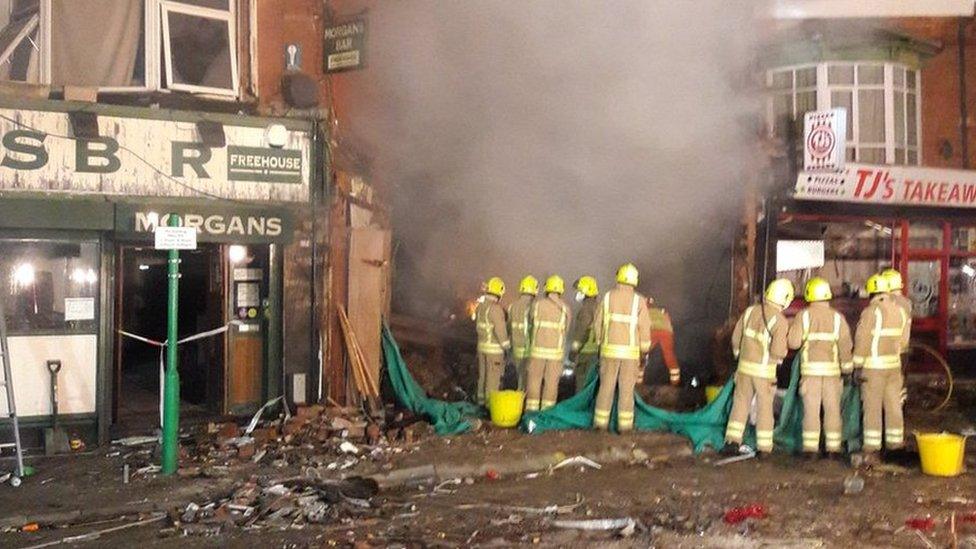Explosion fraudsters committed 'white collar' mass murder
- Published
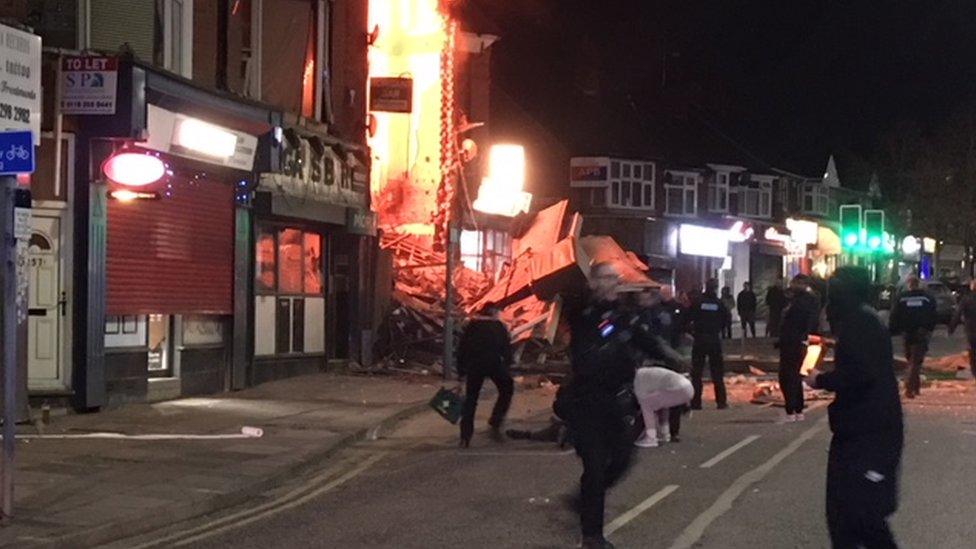
The killers lit 86 litres of petrol in the basement of a shop to benefit from a £330,000 payout
Three men have been sentenced at Leicester Crown Court for the murder of five people - including three members of the same family - they killed in a huge explosion.
Aram Kurd, Hawkar Hassan and Arkan Ali blew up a Polish store in Leicester city centre last February, planning to claim a £300,000 insurance payout.
The men had poured a huge amount of petrol around the shop, fully aware that the fire they set would be a fatal one.
Their actions have been described as a rare example of "white-collar crime" - insurance fraud - taken to a deadly extreme.
They have all been jailed for life - Kurd and Ali for a minimum of 38 years, while Hassan must serve at least 33 years in prison.
What happened?
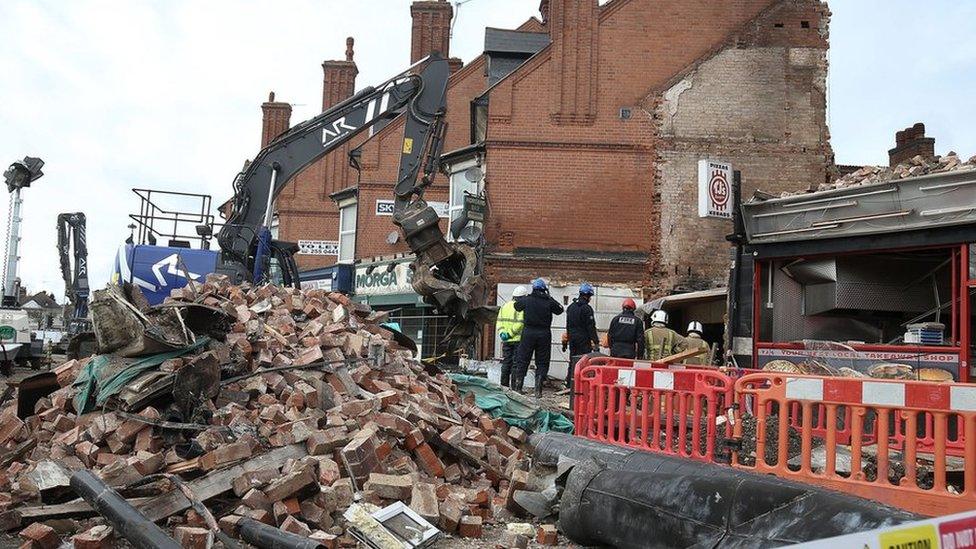
The shop and flat above were both destroyed in the blast
At first, it seemed like it could be a tragic accident. There were rumours about a gas leak, and some speculated that an illegal alcohol distillery had caused the blast.
But as investigators pieced the evidence together, something more disturbing emerged.
Examination of the remains of the Polish supermarket, on the ground floor of the building, found that a staggering 86 litres of petrol had been set alight.
An insurance policy worth hundreds of thousands was taken out just weeks before.
Police soon realised they were looking at one of the deadliest cases of insurance fraud the UK had ever seen.
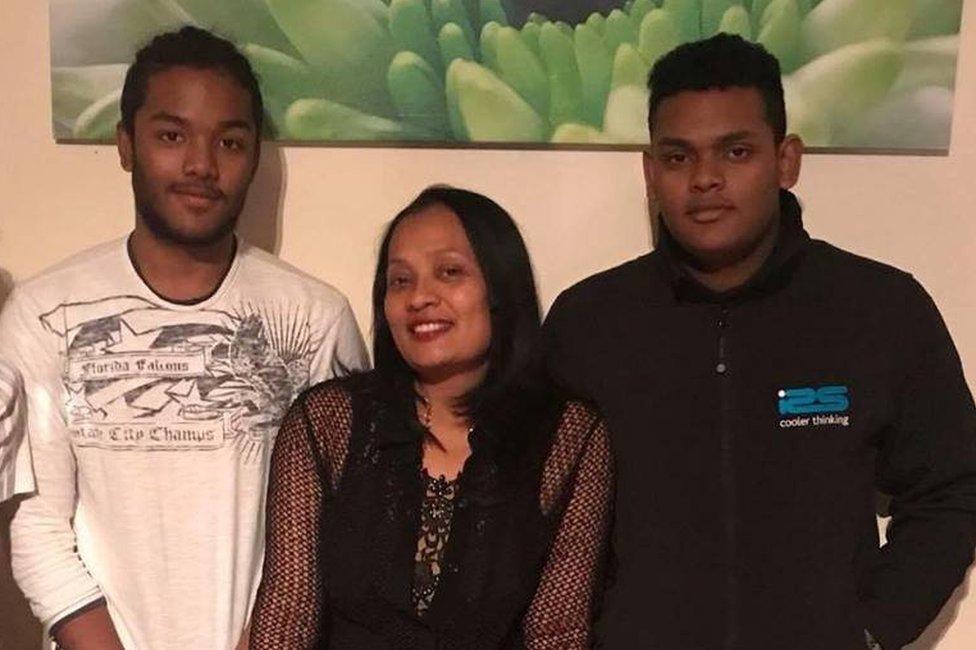
Mary Ragoobar and two of her sons, Shane and Sean Ragoobeer, were killed in the blast
Late on 25 February last year, Kurd, Hassan and Ali blew up the store, planning to claim £300,000 of insurance.
They had taken out a policy three weeks before and bought 26 litres of petrol from a garage - with an additional 60 litres estimated to have been used by the trio.
When the blast went off, it killed Mary Ragoobar, 46, her sons Shane Ragoobeer, 18, and Sean, 17, who lived upstairs, and Shane's 18-year-old girlfriend Leah Beth Reek.
Viktorija Ijevleva, who was working in the shop at the time, also died.
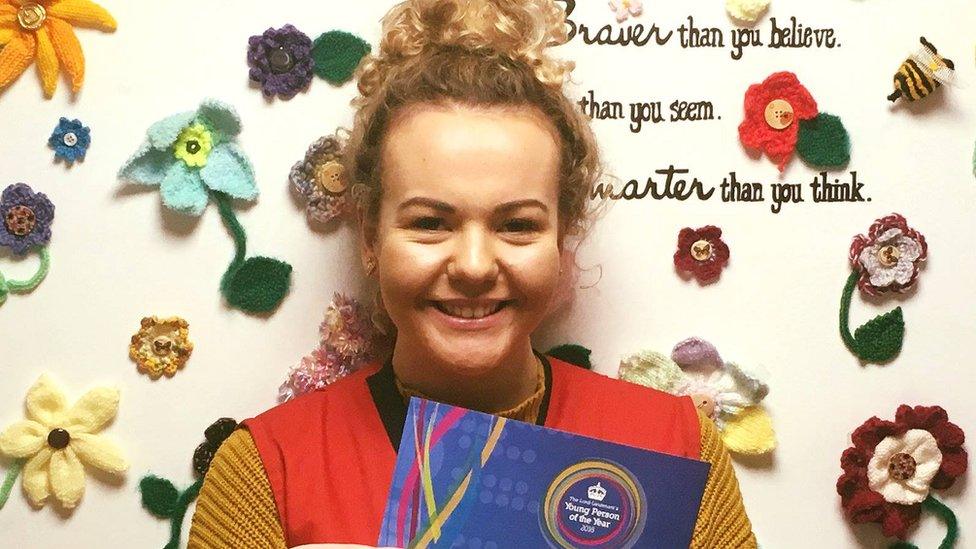
Shane Ragoobeer's girlfriend Leah Reek, 18, was also killed
Did anyone survive?
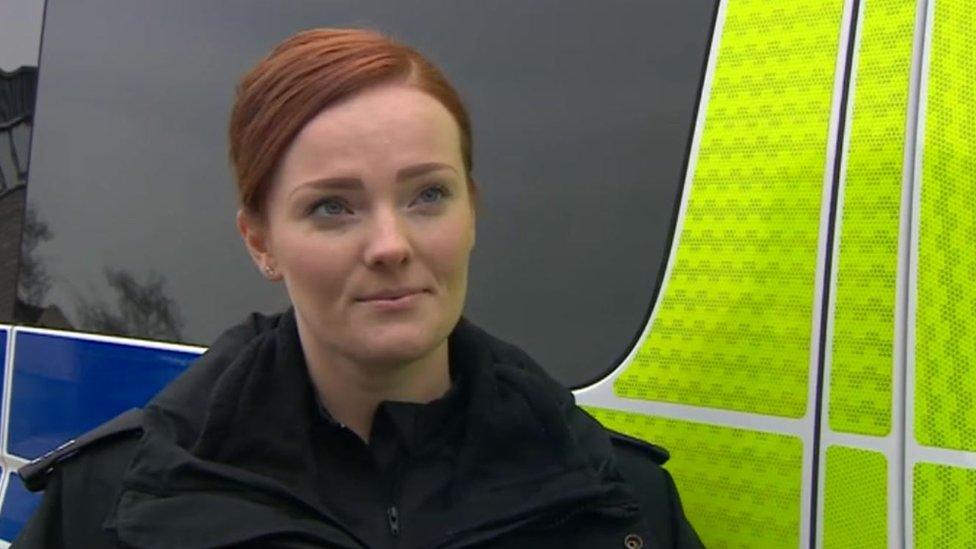
PC Sophie Hooper said her face was hot when she arrived at the hospital with the man she had helped to rescue
Scotty Ragoobeer, who was 15 at the time, and an unnamed passerby were saved when they were dug out of the rubble by police and members of the public.
PC Sophie Hooper, one of the first three officers on the scene, ran to the building to help after hearing a "huge bang".
She and her colleague, PC Shaun Randall, found a man with a concrete girder covering both his legs, which they dragged off him to get him to safety.
"The fire was just getting ridiculous by this point. It was huge. You couldn't stay anywhere near it because it was just so hot," she said.
But while she stayed with the man, PC Randall carried on searching for people and came across Scotty.
"Scotty managed to free his leg and I think Shaun was able to go in from there and pull him out," she added. "If Shaun hadn't have been there then it might be a different outcome for Scotty."
'How lucky'
Adam Wells said he and his girlfriend had been out for dinner and were jolted across the road as they drove within 15ft (4.5m) of the blast.
He rushed to help, kicking at rubble with his feet because the bricks were burning his hands.
For months afterwards, he would dream about it and if he ever heard something loud, he would jump.
"Sometimes I think about how lucky I was," he said.
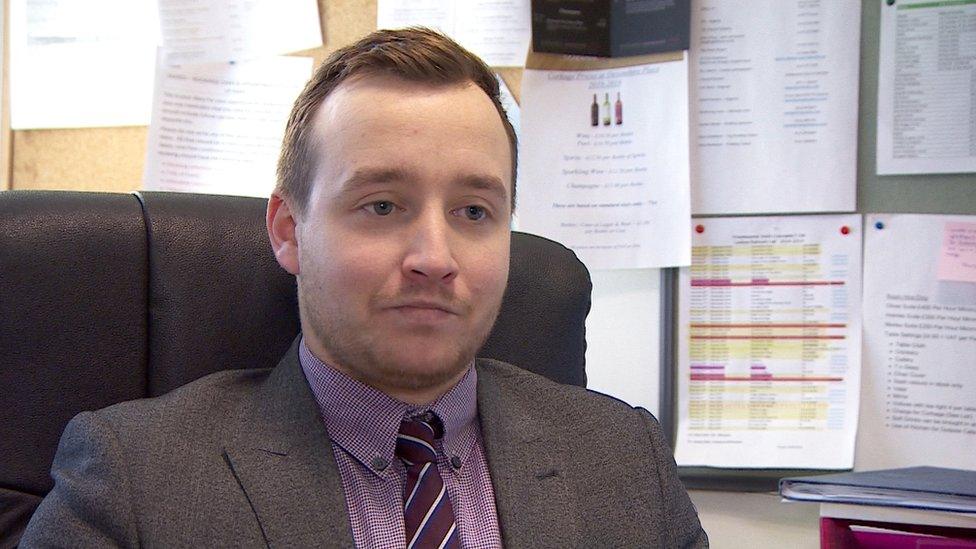
Adam Wells's car was thrown across Hinckley Road when the explosion happened
Why murder over manslaughter?
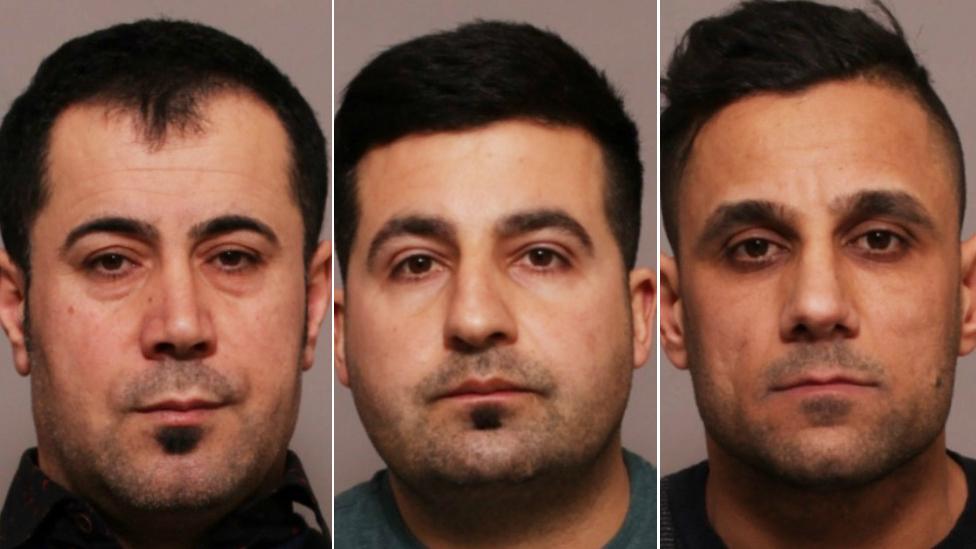
(L-R) Arkan Ali, Hawkar Hassan and Aram Kurd were found guilty of murder and conspiracy to commit fraud
Originally the Crown Prosecution Service could not prove the men had intended to kill anyone and they were charged with manslaughter.
But the case against them started to build up.
Investigators heard 22-year-old shop worker Ms Ijevleva had only started work the day before, but she had been dating Ali and was seen on CCTV travelling with him to take out an insurance policy.
Detectives started to believe a plot had been hatched to set the shop on fire and claim the insurance.
But CCTV, forensic investigations and phone records and the huge amount of fuel used suggested the plotters had decided the blaze should be deadly.
"There must have been 60 litres at the time of the explosion in addition to the 26 litres taken to the shop the day before," said Janine Smith, chief crown prosecutor for the East Midlands.
"What that indicated to us was there were massive quantities of fuel being used, far more than would have been needed to simply start a fire at the shop."
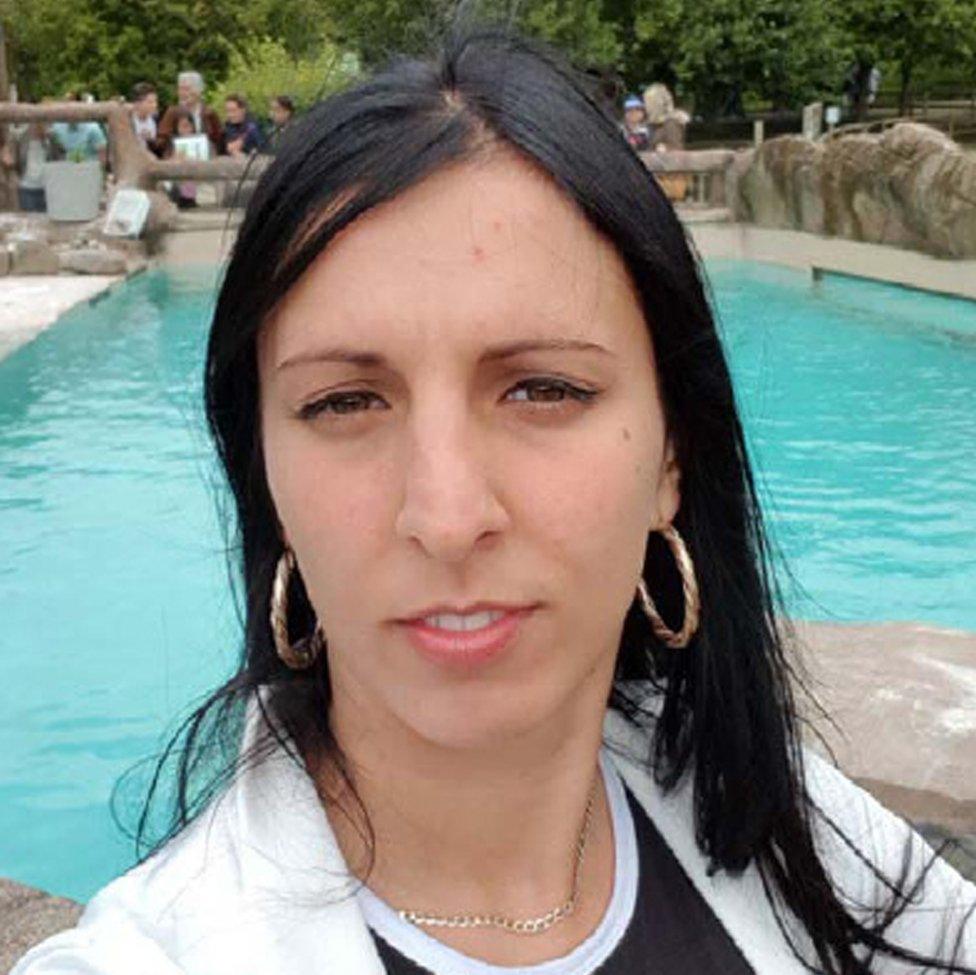
Shop worker Viktorija Ijevleva died in the blast
The motive for killing Ms Ijevleva? Because she "knew too much".
The trial heard that while on remand, Kurd confessed to a fellow inmate, saying he had not wanted to split the money with Ms Ijevleva and the insurance firm would pay more if people had died.
The CPS said there was evidence the three men had been aware there were people upstairs at the time, who had nothing to do with their plan but would be sacrificed for it.
On 28 December, a jury found them guilty of five counts of murder, and they were sentenced on Friday.
"The loss of innocent lives for the pursuit of financial gain is particularly distressing," Ms Smith added.
"You are talking about a shop that wasn't making much money and they might have got a few hundred thousand; it's awful."
An 'unprecedented' crime?
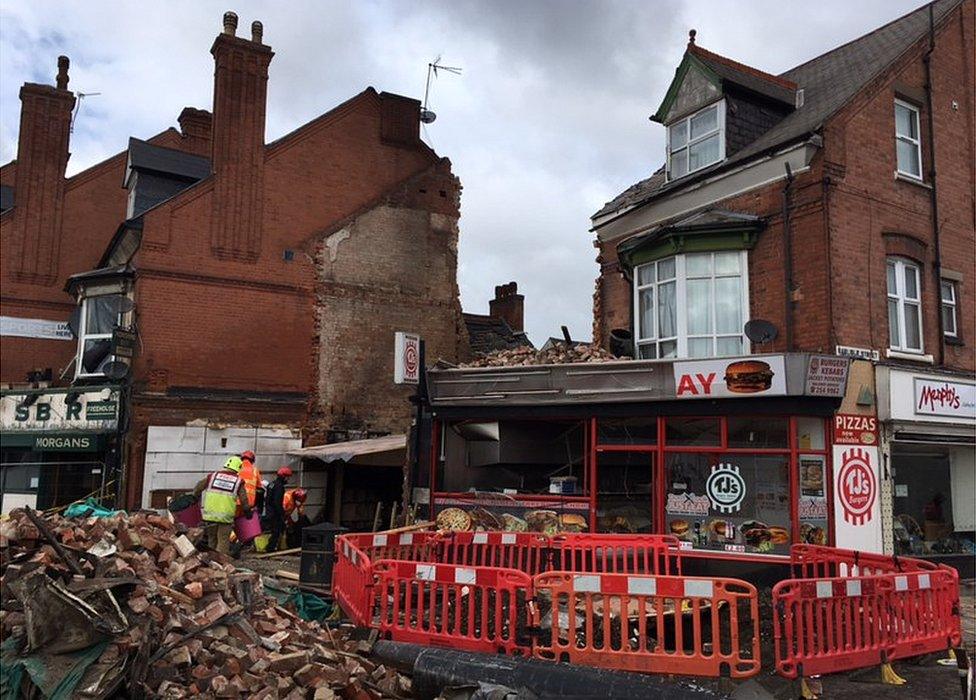
A criminology expert called the explosion an "extreme" case of "white-collar crime"
Craig Kelly, a lecturer of criminology at Birmingham City University, told the BBC he believed this was a rare example of "white-collar crime" taken to the extreme.
"White-collar crime is things like fraud and dodgy backroom deals," he explained.
"This is a very extreme case... and quite an abhorrent one.
"As far as we are aware, this is the first mass murder in the UK which was caused by an explosive device specifically for monetary gain."
Mohammed Rahman, a criminology lecturer at Nottingham Trent University, said the killers were so motivated by money they would not have considered the deaths to be anything other than "collateral damage" in their pursuit of profit.
He said: "Cases of insurance fraud are not few and far between but ones that have resulted in murder are quite rare. This is one of the biggest ever, nationally.
"It is for this reason that the case will go down as an iconic 'signal crime', a tragic event that will shape the public perceptions of insurance fraud for many years to come."
Kurd attempted to hide his involvement in the blast, speaking to journalists - including the BBC - in the aftermath of the explosion.
Shop owner: "I saw fire from everywhere, like I was inside hell"
Ms Smith, from the CPS, said Kurd's interviews with reporters showed similarities with Mick Philpott, who was convicted of killing six of his children in a fire in Derby in 2012, and Ian Huntley, who murdered 10-year-old Cambridgeshire schoolgirls Holly Wells and Jessica Chapman in 2002.
She said: "It's not uncommon, is it, if you think back to the Philpotts and that press conference?
"Once [the facts] had been established... they revealed a clear intention to cause immediate and in fact catastrophic damage."
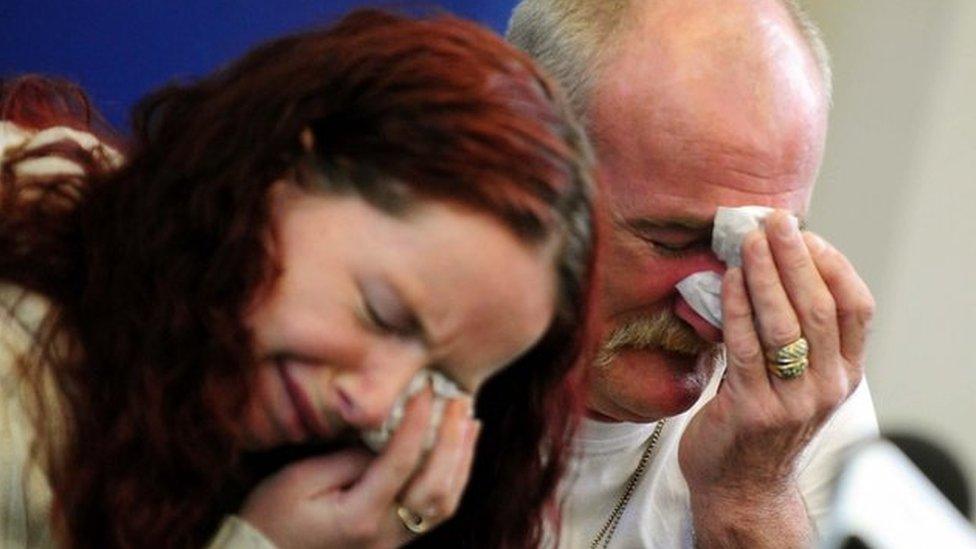
Mick and Mairead Philpott had faced the media at a press conference - apparently overcome with grief
'Every day I cry'
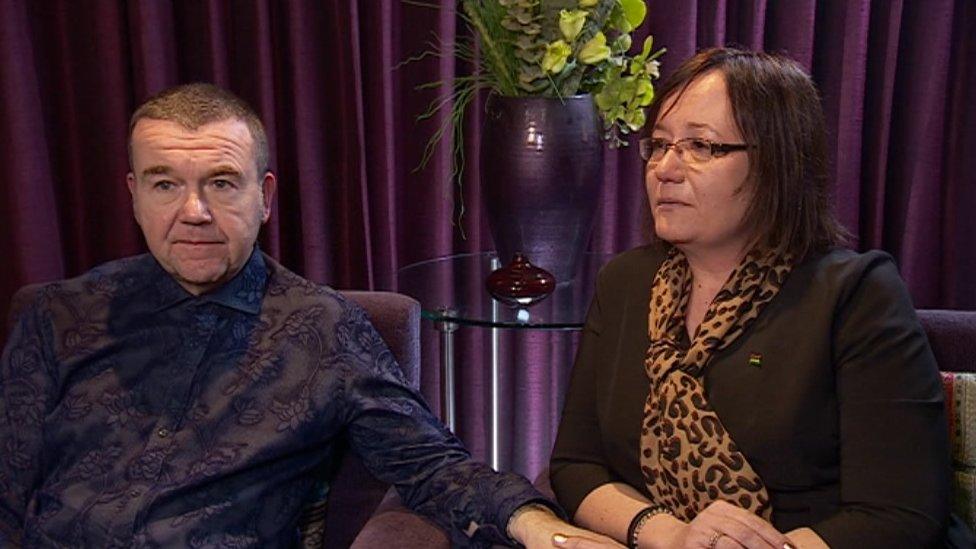
Jon and Jo Reek say they are hoping "the colours will come back" to their lives
The families of the victims have been left horrified that someone could kill their loved ones for cash.
Jose Ragoobeer, who lost his wife and sons in the explosion, said: "It is the first time in my life that I have got hate in my heart.
"I feel angry - since we came to England we have been doing two jobs all the time for our kids and they [the killers] just wanted to make some easy money.
"The sentencing is a relief but we won't have them back."
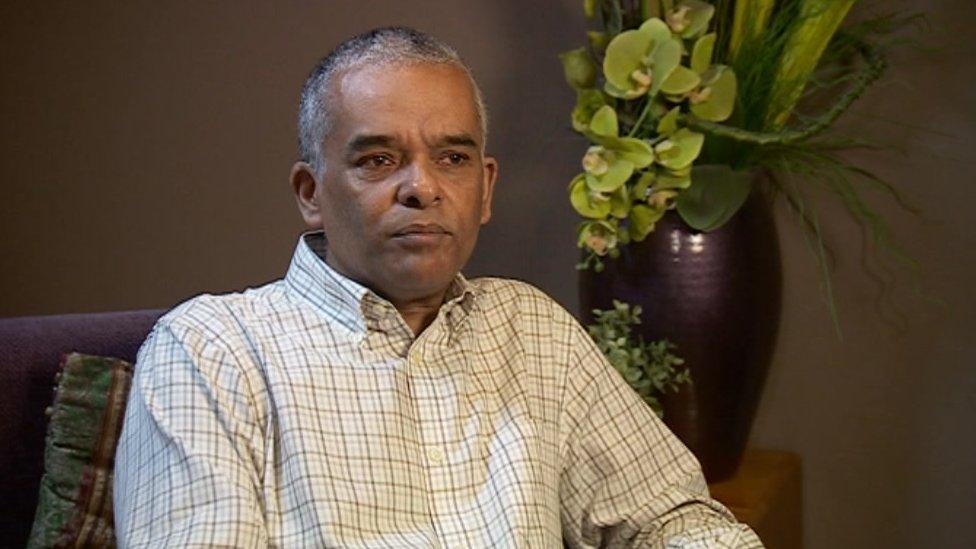
Jose Ragoobeer said he has had good support from family and friends
Jon Reek, Leah's father, said: "I can't believe the mentality of them. It was for £300,000, I could have remortgaged the house and given it to them."
Jo Reek, Leah's mother, said: "They had no thought for human life, it was obviously cheap for them. I tried to look at them and see any element of sorrow but there was nothing at all - absolutely dead-eyed."
In the midst of tragedy, the family's relationship with Mr Ragobeer has blossomed. They recently invited him to their house for Christmas dinner so he didn't spend it alone - Scotty spent Christmas with relatives in Mauritius.
"We have all gone through it," Mrs Reek said. "It's a link that no-one else knows how we are feeling.
"He's such a kind man, we're bonded for life now - he's stuck with us. And Scotty too, we'll always fight for him."
Mr Ragobeer added: "They are very good friends. It helps so you don't feel lonely, you know there are people around you who will support you."

Follow BBC East Midlands on Facebook, external, on Twitter, external, or on Instagram, external. Send your story ideas to eastmidsnews@bbc.co.uk, external.
- Published28 December 2018

- Published6 December 2018
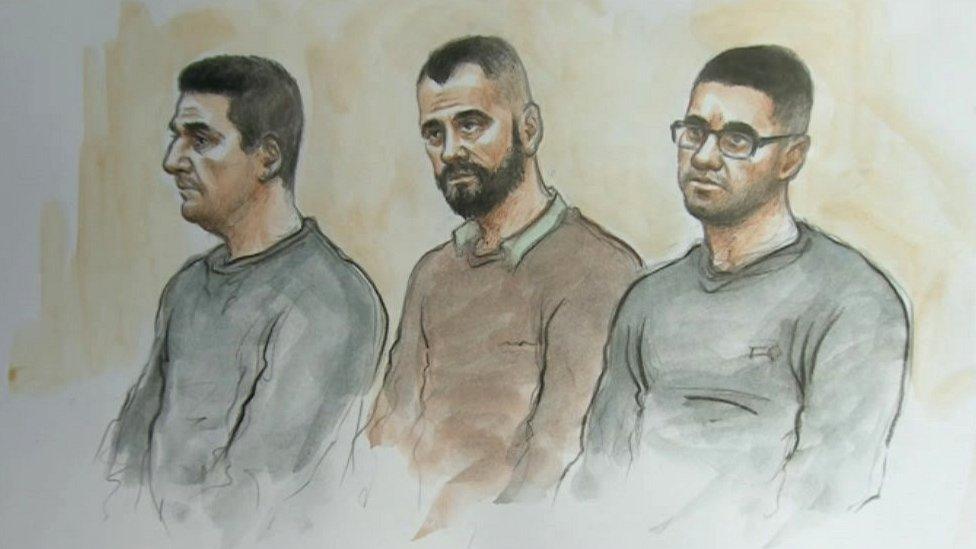
- Published29 November 2018

- Published16 November 2018
